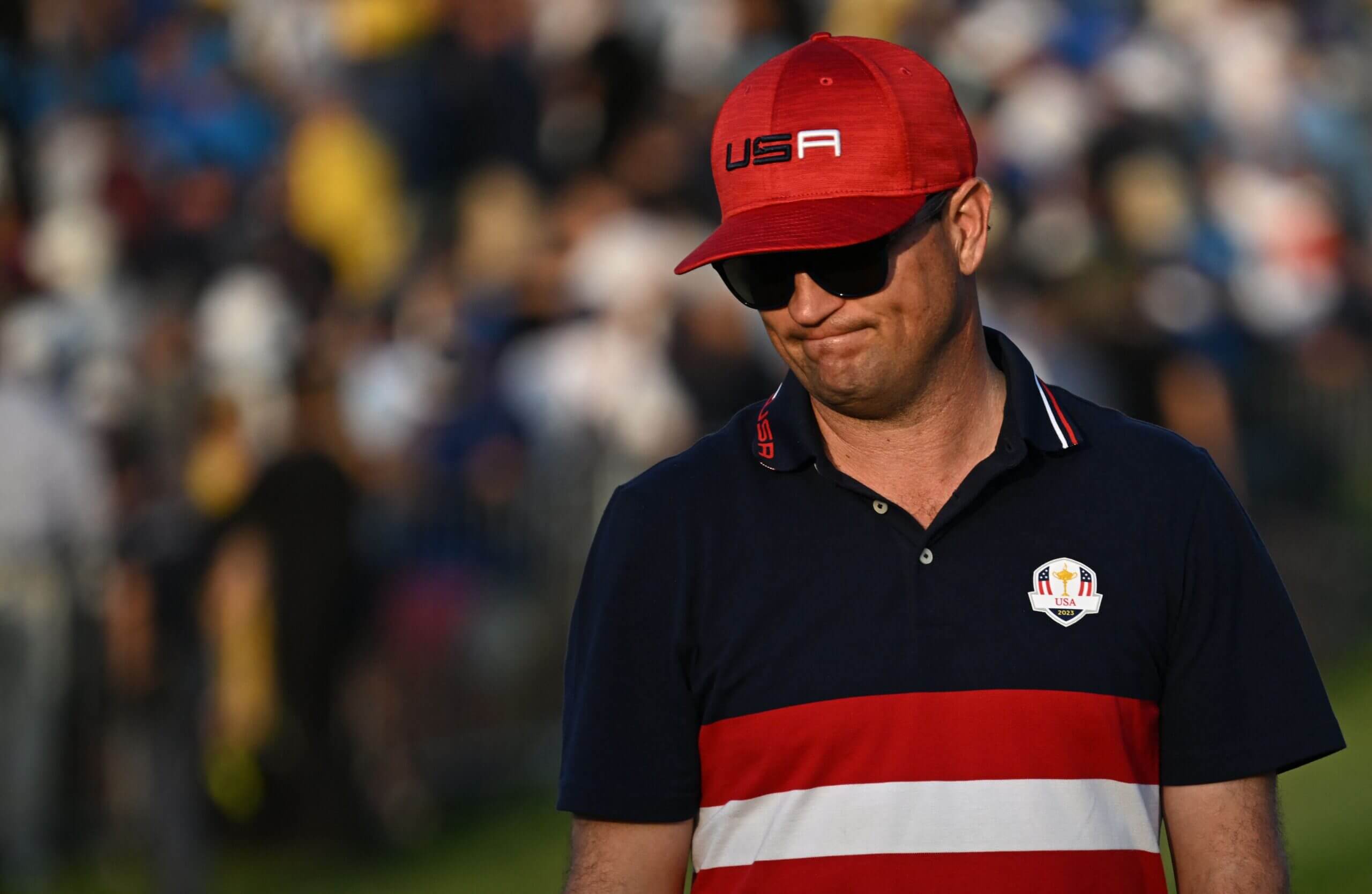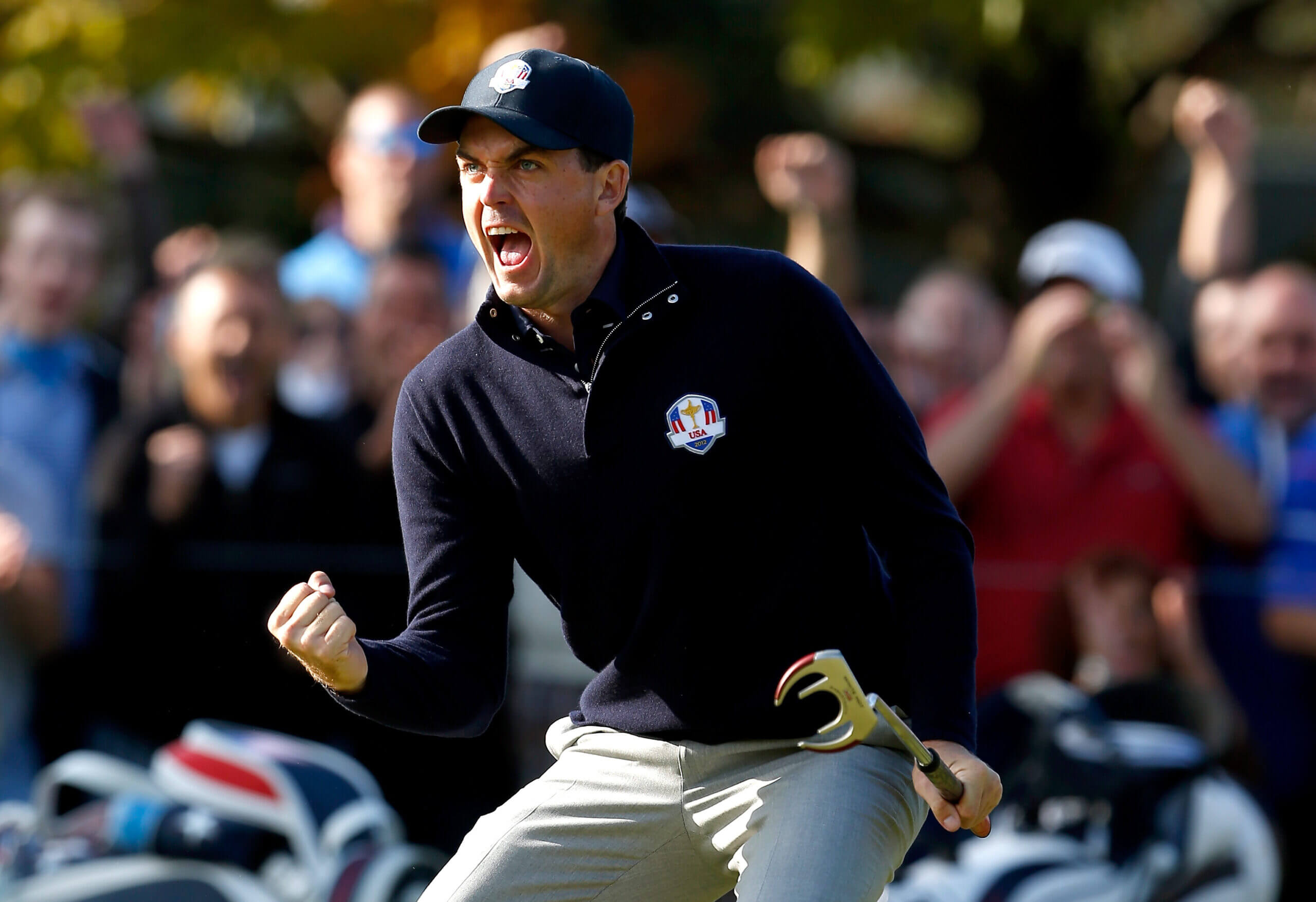NEW YORK — The Google Meet call lasted an hour and a half, but was over in five minutes.
Now that Tiger Woods has officially bowed out — after months, if not years, as the favorite — who will captain the U.S. team at the 2025 Ryder Cup at Bethpage Black?
A five-point loss to Marco Simone in Rome tarnished the American team’s memory. European team captain Luke Donald had been reappointed just eight weeks after the loss. Suddenly, with Woods deciding the captaincy was too much to handle on top of the PGA Tour-PIF negotiations, the Americans were tasked with coming up with a backup plan. Time was running out. Thirteen months remained until the 45th Ryder Cup.
Outgoing PGA of America CEO Seth Waugh, Justin Thomas, Jordan Spieth, PGA of America chairman John Lindert, vice chairman Don Rea and U.S. team director John Wood sat down for a video call during the Travelers Championship last month to decide the next U.S. captain.
The remaining candidates all came from the Ryder Cup working group, a system introduced by Team USA in 2014 that transitions PGA Tour players from assistant captain to captain. The roster, which included Ryder Cup stalwarts like Fred Couples, Stewart Cink and two-time captain Davis Love III, boasted unmatched experience in the biennial event. But none found the success the Americans hoped for. After a crushing loss in Rome, Team USA had to think outside the box. Zach Johnson, who has been widely criticized for his lack of leadership at Marco Simone, was not a candidate.
Woods’ decision to decline the captaincy in 2025 set the stage for a “generational shift,” according to a source directly involved in the decision, who spoke on condition of anonymity to speak freely. It was time for the Americans to “rip off the Band-Aid” and take a risk.
Waugh, who was days away from announcing his departure from the PGA Tour, was the first to mention Keegan Bradley at the Ryder Cup committee meeting, the source said. Based on a list of names compiled by Waugh, the group sifted through the possibilities. Some were expected, others came up unexpectedly. One name came up that was a player who had never played in a Ryder Cup.
But only one person caused a 10-second pause among the six people present at the meeting: Bradley.
“When we picked Keegan, everybody listened and we said, ‘Yeah, this is the guy for you,’” said Wood, who has caddied at six Ryder Cups. “It was a pretty long list. We didn’t want to leave anyone out, that’s for sure. When we got to Keegan, it was a quick and unanimous decision.”
Bradley was passionate about the Ryder Cup, won a PGA Championship, played college golf at St. John’s University and practiced once a week at Bethpage Black with his teammates. Spieth was quick to express his enthusiasm. “Some of the choices don’t seem like much fun,” the three-time major champion said, according to the source. “Playing for Keegan seems like fun.” Minutes later, the committee made its final decision.
Bradley, a 38-year-old who was left off the 2023 team and hasn’t played in the event since 2014, was set to be the next Ryder Cup captain.
He had no idea he was in the running.
The organization of the American Ryder Cup needed a change.
The Ryder Cup “task force” was originally created to facilitate a transformation of the American structure, which had long named captains based on their career achievements. It laid out a plan to introduce familiar faces to the U.S. team and create continuity from event to event, including the Presidents Cup. But each time a captain relied on those who had held the top seat before him instead of bringing in new voices as vice-captains, it created the same problem that Woods and Phil Mickelson faced a decade ago — executives who were more familiar with the Champions Tour than the current PGA Tour.
As Waugh told the group, according to the source, the task force “was created to change and now it has become an agent of non-change.”
Johnson’s leadership of the 2023 Ryder Cup was at the heart of the problem. He selected Love, Couples, Cink, Jim Furyk and Steve Stricker as vice-captains, creating a significant generational gap between the players (average age of 30.33) and the leaders (55.6). Then Johnson used his captaincy choices to select Spieth, Thomas and Rickie Fowler, players he had known on the PGA Tour. Thomas was having the worst season of his career, and Spieth’s wife had given birth to their second child two weeks earlier. Johnson has consistently relied on familiar pairings (like Thomas and Spieth), going against the wishes of some team members but listening to others. The plan backfired, and Johnson has been accused of favoritism and perpetuating a “boys’ club.” At least one former U.S. Ryder Cup team member has said he hopes Bradley can provide a fresh start.

A disastrous loss in Rome tarnished Zach Johnson’s reputation and sparked debate over change within the U.S. team. (Paul Ellis/AFP via Getty Images)
There was no crisis meeting after the team’s crushing defeat in Rome, but there was a concerted effort to break out of an “echo chamber of monotony.” The Ryder Cup Committee believed the U.S. team needed to modernize, and Bradley’s captaincy would be the first big step in the right direction.
Woods’ decision to step away from the race made that decision possible. Since turning down the opportunity to lead the 2023 team in Rome, Woods has been tapped to lead Team USA at Bethpage Black. For months, Woods communicated with the PGA of America, pushing back the deadline for his decision as he considered the role. When Woods takes on a job, he’s known for giving it 100 percent. While he was the director of players on the PGA Tour’s board of directors, helping to unite the currently divided professional game, he couldn’t make that commitment for the Ryder Cup. Shortly after the U.S. Open, Woods officially declined the captaincy.
“That’s not to say I wouldn’t want to be a team captain in the future. If and when I feel the time is right, I will put myself forward for this committee to decide,” Woods said in a statement.
There were signs of change before the 15-time major champion’s decision.
A brand new role, that of “manager” of the U.S. team, was created and filled by Wood, the caddie-turned-NBC Sports analyst. Members of the working group were excluded from discussions around the Plan B captains list. “I’m officially out of the loop now,” Love III said before Bradley’s official announcement. “I haven’t heard from anybody, not even Zach.” Phil Mickelson withdrew from the Ryder Cup race when he assumed the leadership role in the rise of LIV Golf.
Several factors led the group to choose Bradley. But Woods’ departure allowed something dramatic to happen.
As the countdown to the Golf Channel broadcast began, Bradley sat next to the PGA of America chairman and the gleaming Ryder Cup trophy in the Nasdaq building in Times Square. Eyes wide, he collected himself before answering questions about a job opportunity he never applied for.
“I don’t think I’ll ever be that surprised by anything in my life,” Bradley said Tuesday. “I had no idea. It took me a while to realize it. I wasn’t entirely comfortable with some of the people who were being ignored. So it was a heavy reflection and a heavy moment.”
Bradley was first informed of the Ryder Cup committee’s decision in a phone call on June 23, the Sunday night after the final round of the Travelers Championship in Hartford, Conn. Waugh, Johnson and Lindert reached out to the Vermont native and told him the news.
A few days earlier, the group had first mentioned Bradley in conversation about the Ryder Cup captaincy. They waited until after the tournament to reveal their decision.
A year ago, Bradley was cut from the U.S. Ryder Cup team. In a year, he will lead it and be the youngest player since Arnold Palmer in 1963. Several days passed before Bradley could officially accept the job. At first, he didn’t think he deserved it and he still can’t explain why he was chosen.
“I don’t know, I’m still thinking about it,” Bradley said. “But I know I can do this job.”

The U.S. Ryder Cup team will depend on Bradley’s enthusiasm for the event as part of his leadership strategy. (Jamie Squire/Getty Images)
Before leaving the club, Bradley spoke at length to Woods about his responsibilities. He even called the 82-time Tour winner the morning of his news conference. He had frequent conversations with Waugh over the course of three days. Bradley didn’t hesitate to accept the captaincy, but he needed additional support. He reminded himself that he hadn’t been chosen by just suited-wearing board members. He had been chosen by two of his peers: Thomas and Spieth.
“As a player, the players’ opinions are what matter most to me,” Bradley said. “That’s what mattered most to me.”
Bradley’s close alignment with his team members will mark a new direction for Team USA’s Ryder Cup leadership strategy. On Tuesday, the six-time PGA Tour champion expressed his desire to name younger vice-captains. He was candid in saying he would still work to qualify for the team via the Ryder Cup points list (the top six players in the standings are currently on the team, though as captain he has indicated he might want to add more automatic qualifiers). He decried any bias against LIV players in his future selections.
“I’m going to have the best 12 players on the team,” Bradley said. “I don’t care where they play… I don’t care about the LIV.”
Youth. Analysis. A personal connection to Bethpage Black. Bradley may have been a surprising choice for the Ryder Cup captaincy, but it wasn’t a foolish one.
He has become the latest avatar of change, and the American team is staking its reputation – and its quest for the Ryder Cup trophy – on his success.
(Top photo: Seth Wenig/AP)